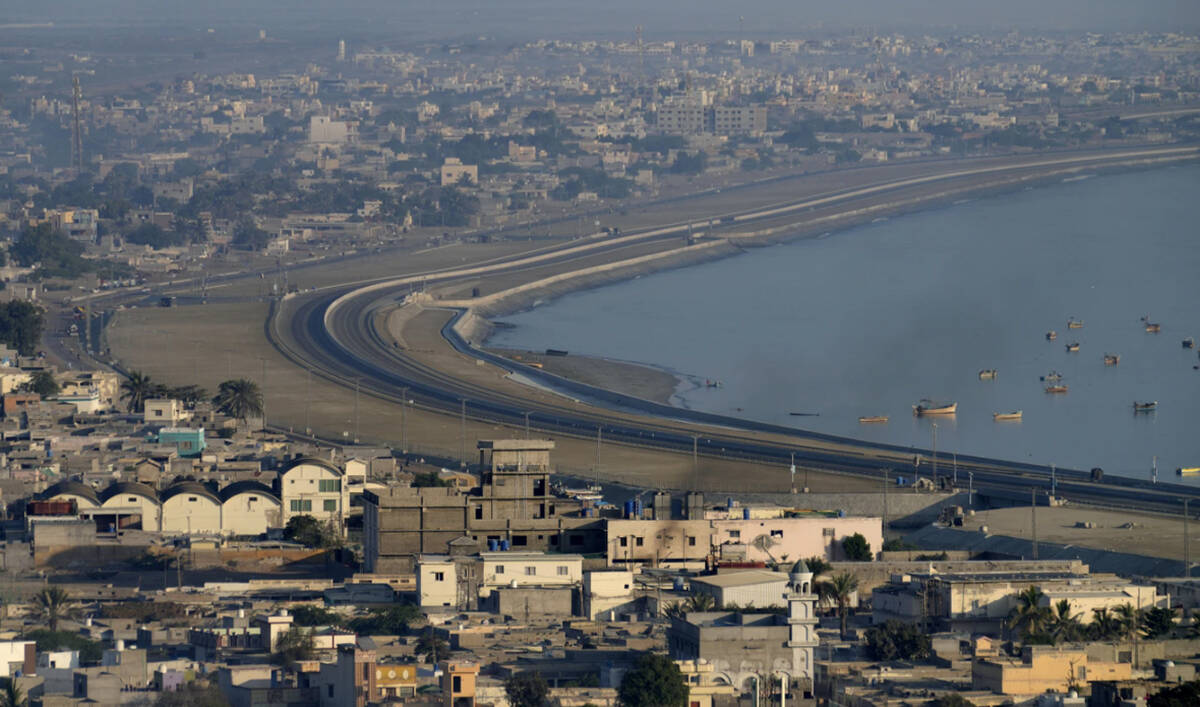ISLAMABAD: Pakistan plans to propose the idea of making global health matters apolitical, especially in light of the Gaza situation where Israel has flattened out hospitals and left Palestinians without basic medicines, said a government minister on Friday while sharing the agenda of the Global Health Security Summit next week.
The two-day summit will kick off in Islamabad on Wednesday and bring together global leaders, international organizations and civil society activists to foster collaboration, engagement and consensus among the participating nations on solutions contributing to a safer world and healthier future generations.
“We want that health should remain apolitical and that should be one theme of this summit that we would like to echo and resonate from everybody, especially in the context of Gaza,” Caretaker Health Minister Dr. Nadeem Jan told Arab News in an exclusive interview.
He emphasized that health care should remain accessible to all global communities, regardless of religious, ethnic and ideological affiliations.
The minister said Pakistan had called for an immediate end to the bombing and victimization of innocent civilians in Gaza along with comprehensive health care interventions from all available sources to address the needs of the people.
“The United Nations or any other country should be provided access to those places and to those people who are in need of [medical attention], and protection of health facilities and health workers should be ensured,” he added.
Pakistan has sent three batches of relief goods for the residents of Gaza who have faced relentless bombing by Israeli warplanes in densely populated neighborhoods. Israel has killed over 22,000 people in the Palestinian territory, mostly women and children, since Oct. 7 while ignoring calls for a cease-fire from countries around the world.
“At least 500 [Pakistani doctors and paramedics] are ready to be transported and shipped to Gaza, but since [their] entry and security is an issue, so, we are waiting for a window,” he said.
Asked about the participants of the summit, the minister said around 70 international experts, officials of health ministries and representatives of international agencies were invited to the event where an international charter would also be signed.
The minister said his country was working on technology transfer from Saudi Arabia to Pakistan for salt production, which serves as the foundation for various medicines.
“Because we don’t have that capacity in Pakistan, therefore, we import it and this [generates] a huge import bill of Active Pharmaceutical Ingredients which [are vital for] various medicines,” he informed, adding the government had already chalked out a mechanism for this purpose in collaboration with Saudi health officials.
“They are coming to the summit and hopefully we will go for a formalized approach toward that investment,” the minister said, adding another area where the two countries wanted to collaborate was plasma fractionation.
He said he was hopeful to formalize mechanisms to export health care professionals, including doctors and paramedics, to Saudi Arabia and the United Arab Emirates on the sidelines of the summit.
Discussing the new wave of COVID-19, he said Pakistan had adopted a proactive approach by enhancing screening at all points of entry to prevent new cases of infection.
“We can confirm that there is no single case of JN.1 here [in Pakistan],” the minister said, adding that two percent of international passengers would be tested to avoid any threat of the virus spreading across the country.
“We have also equipped all 150 of our districts with the disease surveillance and response units to deal with such situation,” he added.
















